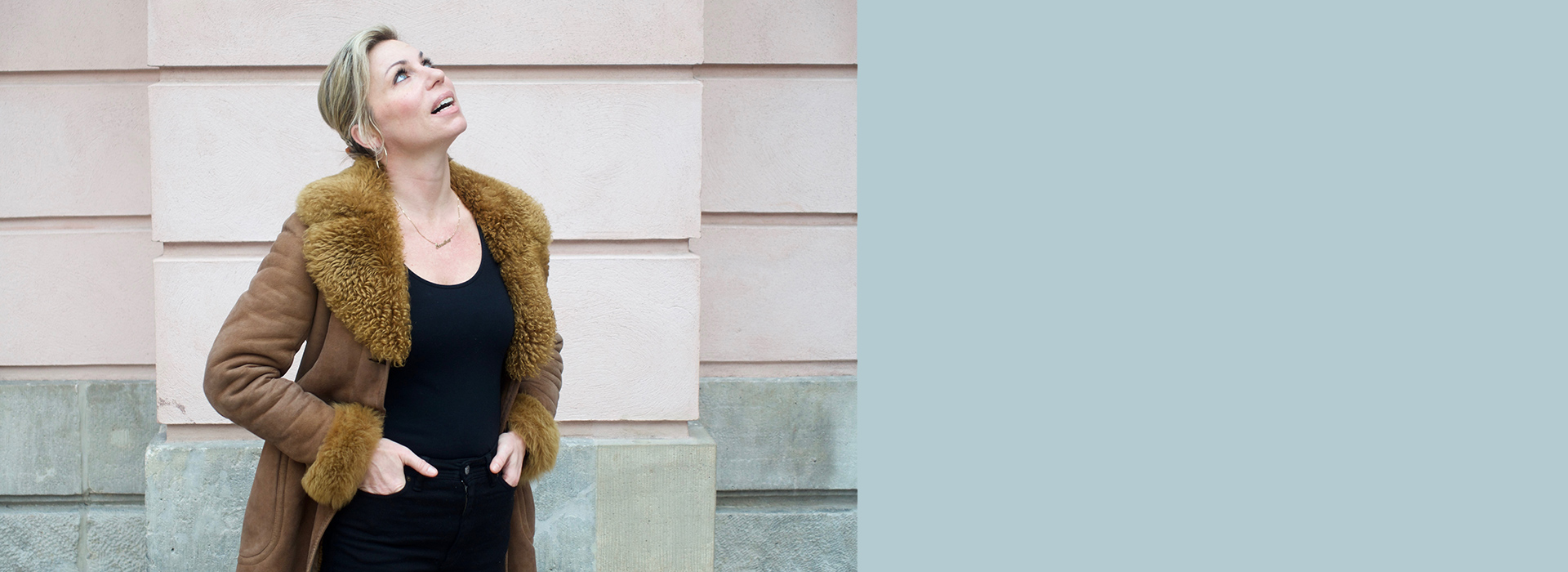A PORTRAIT OF DIRECTOR SANDRA KAUDELKA
Sandra Kaudelka (© suza)You are 12-years-old, the Berlin Wall has just come down, you visit your father, whom you have not seen for most of your life, in West Berlin, and what do you do? If you are Sandra Kaudelka you insist everyone goes to the cinema! (Tim Burton’s BATMAN, if you’re asking). Hero status right there!
“Cinema-love was always in me,” Sandra Kaudelka explains from well beyond the officially advised safe distance of 1.5 meters. “Films were my best friends when I was growing up, then I was able to study my passion at Berlin’s Humboldt University and afterwards I found my home at the DFFB.”
Born in Leipzig in 1977 into what became a divided family (her father had increasing problems with the Stasi until he was forced to emigrate to the West), Kaudelka’s career could have gone in a completely different direction. To be exact: straight down! Because ... “I was a top sports-girl in the GDR,” she explains. “I was a diver. And scared of water and heights!” Okay, pause for thought. “But I was very talented and was a GDR champion in 1989! I was ‘encouraged’ to get over my fears! I learned that despite fears you can still achieve a lot in life!” And this is her wellspring. Because if you can throw yourself against your nature off a high board, then the high-risk business of making films is something you take in stride.
“Interested in people in extreme situations and social-critical and political questions,” Sandra Kaudelka started out as a documentary filmmaker. Why? “They are possible with little money!” she laughs. Her latest film, WAGENKNECHT, about Sahra Wagenknecht, then parliamentary leader of the left-wing party Die Linke, played to great audience accolade at this year’s Berlinale. “I was always political,” Kaudelka explains, “but to experience politics that close was incredibly sobering. Incredibly interesting, but I wouldn’t want to experience it again! I don’t want to lose hope in our system! It changed my view of politics in general, and not just of one single party. Political egos can be very destructive.”
Kaudelka’s award winning I WILL NOT LOSE (2013) was her riposte to what she considered the one-sided, Western narrative about sport in the GDR: “I needed to show the broad spectrum. Many people were not victims: they participated and enjoyed it. So I found many sportspeople, all with different stories. I wanted to show a society portrait.”
But she also makes feature films! As a writer, Sandra Kaudelka, believes “features are very strongly biographical. Often about a character’s basic situation.” She is currently “working on WAR HOLIDAYS, about a manager who holidays in war zones and takes pictures. I researched and wrote a story. Or there are things I have experienced, such as coaching (DIE MASSNAHME). It was so depressing I felt I had to write it down: the people and situations, you can’t change someone’s life in four or five weeks, you cannot have an effect even if you really want to.”
So, how does she work? “There comes an impulse, then I get into bed and write, I always write in bed!” Also on her development slate is INTERSHOP, “an ode to working mothers in the GDR, a very passionate, funny but also sad story; the big theme of solidarity among women.”
Citing Katherine Bigelow (“THE HURT LOCKER is one of the best films about men I ever saw”), Larisa Shepitko and Stanley Kubrik (“My superhero, always reinventing himself as a perfectionist”) as her biggest influences, Sandra Kaudelka strives with her films “to add value, reach people, shake them a bit. Go, Costa Gavras!” she laughs. “But seriously, I want the positive forces to combine to create a more tolerant, stronger society for the future, that ego will be thrown overboard. Ego is the biggest problem, more humility would be a good idea. But when positive forces combine, then anything is possible.”
Simon Kingsley

